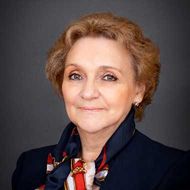- A
- A
- A
- ABC
- ABC
- ABC
- А
- А
- А
- А
- А
-
School
-
Online
The School of International Regional Studies is a research and educational centre seeking to revive international regional studies as an academic discipline in Russia. The department’s world-class professors train the next generation of regional studies specialists while developing an increasingly prestigious research school.
Kanaev E., Adno Y., Afontsev S. et al.
IMEMO RAN, 2024.
International Journal of Information and Education Technology. 2024. Vol. 14. No. 10. P. 1335-1343.
Kashin V., Yankova A., Kondakova K.
In bk.: The Oxford Handbook of Geoeconomics and Economic Statecraft. Oxford: Oxford University Press, 2024.
Shein S., Ryzhkin E.
Political Science. PS. Высшая школа экономики, 2022. No. 89.

JAPAN AND COVID-19
On Thursday, 23rd of April seventh online meeting with international expert Tetsuya Toyoda, Director of the Institute for Asian Studies and Regional Collaboration at Akita International University (Japan) was held in the framework of the project of the School of International Regional Studies of HSE University. The topic of the discussion was “Japan and COVID-19”.
The welcoming speech was traditionally given by the Head of the HSE School of International Regional Studies of the Faculty of World Economy and International Affairs, Associate Professor Vera Vishnyakova, who also introduced the invited experts and the well-known specialists in Asian Studies, namely Konstantin Korneev, Senior Researcher at Centre of Japanese Studies, RAS; Olesya Emelyanova, Associate Professor of HSE University; Uliana Strizhak, Associate Professor of the Faculty of World Economy and International Affairs and the Academic Supervisor of the Programme Asian and African Studies; Evgeny Kremnev, Head of the Oriental and Regional Studies of the Asia-Pacific Region Department of Irkutsk State University.
Professor Toyoda started his lecture with the short overview of COVID-19 outbreak in Japan from the first case on January 16 and first death on February 13 to the present situation. The speaker noticed that at the beginning the emergency was declared only in 7 prefectures, but later expanded to the whole country in order to reduce the people-to-people contacts.
Among the issues that Japan faced while fighting with COVID-19 the expert mentioned the limitation of testing capacity that provided wrong data of the infected. Professor Toyoda expects that as more testing will be conducted, the bigger will be the number of infected, while now Japan has relatively small number of cases.
It is important to mention that Japan has proved itself in crisis management over the history, with the most significant economic crisis of 1997 and the Fukushima nuclear disaster of 2011. Depicting the governmental response to the pandemic, Professor Toyoda underlined that the government imposed no legal restrictions on movement, therefore letting people to decide either they want to isolate themselves or not. The expert also noted the criticism that the government faced concerning the friendly relations with China that allowed tourists from Wuhan travel to Japan and concerning the issue of postponing the Olympic Games.
According to the expert, the possible consequences of coronavirus will re-shape Japanese domestic and foreign policy. First of all, it is applicable to the stronger network of production with China and the Republic of Korea and the US losing its power in the South East Asia. That will contribute greatly to the recovery of Sino-Japanese relations. Secondly, the changes of Japanese economy that starts now will continue in future according to the global trend of transition to online operations and transactions. Though Japan is export-oriented country that will need to reconstruct the supplies to the other countries, it is still very crucial for the country to produce the abundancy of the goods and services for the domestic consumption. Moreover, the current crisis will challenge the leadership of the current Prime Minister Shindzo Abe, who’s term in office will end in September 2021. Prime Minister Abe is well-known for his forward-looking policies, especially in his attempts to reconciliate with China.
After the lecture, Professor Toyoda answered the questions from the experts and the participants, expressed his gratitude to the School of International Regional Studies of HSE University and aspiration to give the next lecture in Moscow.
Video is available to the link: https://youtu.be/2lyt23_yOws
- About
- About
- Key Figures & Facts
- Sustainability at HSE University
- Faculties & Departments
- International Partnerships
- Faculty & Staff
- HSE Buildings
- Public Enquiries
- Studies
- Admissions
- Programme Catalogue
- Undergraduate
- Graduate
- Exchange Programmes
- Summer Schools
- Semester in Moscow
- Business Internship
-
https://elearning.hse.ru/en/mooc/
Massive Open Online Courses
-
https://www.hse.ru/en/visual/
HSE Site for the Visually Impaired
-
http://5top100.com/
Russian Academic Excellence Project 5-100
- © HSE University 1993–2024 Contacts Copyright Privacy Policy Site Map
- Edit



